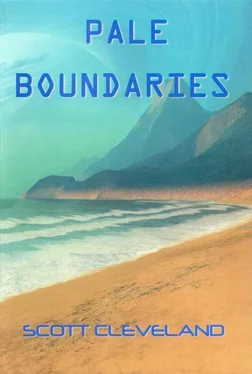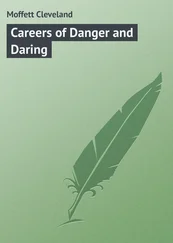“Sir, please remain where you are until we secure the area,” the leader asked in a tone that suggested steps would be taken to compel cooperation. Only after he sent a pair to sweep the shuttle did he allow Hal -san and Dayuki to rise, though the ring moved with them to the hatch. Anything more than a shallow gulp of breath triggered excruciating pain in her ribs; the few meters it took to reach the shuttle and the climb up the ramp left her dizzy and panting.
“Are you alright?” Hal -san asked.
“I am fine.” The pain in her ribs was worse, but other issues demanded Hal- san’s attention. “You must find the gaijin ,” she urged. “He cannot be far.” She leaned against the wall, still short of breath, as a wave of nausea overtook her.
“We’ll find him,” Hal -san assured her. “Sit down.”
“Yes,” she agreed. “I must rest a moment.”
Hal left Dayuki and returned to the hatch. They’d moved McKeon to the bottom of the ramp and the snow around him was strewn with packaging from the shuttle’s medical kit. “How is he?”
“In a bad way, sir,” said the securityman who’d taken command. “He’s effectively bled out.”
“Do what you can and get him aboard. We’re not done here, yet.”
The man’s expression went blank. “I apologize, sir, if I was unclear: he won’t survive without advanced medical intervention.”
“You were perfectly clear,” Hal replied, “and the sooner we complete the mission the sooner he’ll get it.”
Their gazes locked. Hal knew his command of the situation was tenuous, at best. Like many administrators, he paid little attention to security personnel unless they were needed, and expected them to fade into the background again afterward. He recognized a face or two among the members of this team, but knew none of their names—and they knew that. They gave their personal loyalty to the man lying clinically dead at the bottom of the ramp; whether they would follow orders indirectly assuring his death remained to be seen.
Finally, grudgingly: “Understood, sir.”
Hal returned to the passenger compartment to check on Dayuki. Her face managed to appear ashen even through the blush of her burns. Her lips were tinged with blood. “Difficult…to…breathe,” she panted.
“I need assistance up here!” Hal bellowed.
The securityman previously working on McKeon came at a run. “She’s bleeding in one or both lungs,” he informed Hal as he strapped an oxygen mask to her face. “This is serious—life threatening.”
That decided it. “Get everyone aboard. We’re going back.”
Terson’s first instinct was to put as much distance between himself and the shuttle as quickly as possible, but blindly fleeing danger was apt to get him caught more easily than a slow, methodical retreat. His initial dash had taken him downhill, the direction nearly every human ever born took in flight. Uphill was harder, and slower, but exactly the opposite course they’d expect, especially if they assumed panic had influenced his actions and did not follow his physical trail very far before turning to the shuttle’s advanced technology.
It took a while before he realized that he was getting cold.
The Minzoku woman had taken the brunt of the first blast, and though it was obviously intended to miss it accomplished its purpose by separating captive and captor enough for the second, more prejudicial shot. Whether by mere good fortune, extraordinary reflexes, incompetent aim or a combination of all three, that shot, too, expended its energy against snow and frozen ground, sending him flying in a cloud of scalding steam.
The human nervous system’s ability to differentiate between hot and cold existed within a fairly narrow range. Beyond that range in either direction the signal sent to the brain was basically the same: pain. Applying both extremes at the same time made it difficult to tell where one stopped and the other began.
Terson leaned heavily against the trunk of a tree, chest heaving for breath in the thin, cold air, and pulled off his gloves to check the connections of the power cell at his hip. Along the way his fingers encountered large tattered strips of the coverall’s windproof outer covering where the force of the shuttle’s parting shot had separated it from the inner insulating layer.
The battery was rapidly expending its charge to warm a garment no longer capable of efficiently retaining heat. Alone, without weapon or tool, surviving the night was a dicey prospect. The flashlight was still secure in a pocket and he risked a quick look around. The trees were fewer, petering out at higher elevation, while the snow grew deeper. Shelter clearly lay down slope, but the terrain would funnel him closer to the area that Den Tun’s Onjin were most likely to search for him. The only viable option was to find shelter in another draw. He’d have to traverse the ridge forming the one he was in now, which meant going higher yet.
The temperature dropped quickly as he climbed. The deep wet snow developed a crust almost thick enough to support his weight. Fluffy snowflakes gave way to dry needles of ice driven across the hardening surface by steadily strengthening wind. Terson had never even been as far north as Ipswitch in all the years he’d been on Nivia, and the reason was no surprise: If Saint Anatone felt chilly to him on its hottest day, why would he ever consider going farther north?
Now he wasn’t just cold, he was damn cold. Bone chillingly, mind numbingly, unimaginably frighteningly cold. Colder than he’d ever expected to be on the surface of a habitable world, and uniquely unprepared to deal with it. The one thing he knew with absolute certainty was that he was a dead man if he didn’t find shelter soon.
He paused again to probe about with the flashlight. Snow. Everywhere he looked a whipping sheet of white blocked sight of everything more than a few meters away—everything except the shining orbs of eyes. The twin points of light vanished from one place and appeared in another as the animals moved about, making an accurate count impossible. Half a dozen or fifty, it didn’t really matter: he was outnumbered and unarmed.
Terson had no idea how long they’d been following him, but the fact that they were content to do nothing more was a good sign that he was large or alien enough to make them cautious. The fact that the weather didn’t overcome their interest, on the other hand, was not a good sign at all. He pressed on again with the flashlight constantly in hand to verify that they didn’t come closer or surround him entirely. Soon, he hoped, he’d reach the summit that would signal him to head down again, toward shelter.
The wind whipped heat away from his extremities faster than physical exertion generated it, drawing down his core temperature by tenths of a degree until he began to shiver uncontrollably, staggering forward on legs that couldn’t feel the ground beneath them.
He grew so accustomed to putting his weight on a limb that he couldn’t feel that when his left foot came down with nothing to support it, he didn’t realize it until it was too late. His body pitched sideways, splaying out on the frozen crust, and he began to slide down the side of a monstrously steep incline. Terson fought to get to his feet on the bare, windswept crust but they shot from under him as he accelerated.
A tree trunk flashed by, then another and another, all too large to grab hold of but plenty big enough to smash into. All he could do was roll away as he spotted them, invariably moving into the path of another. They came faster and more tightly spaced the farther he went, and he was skinned and bruised by glancing blows by the time the slope began to level out.
Читать дальше












